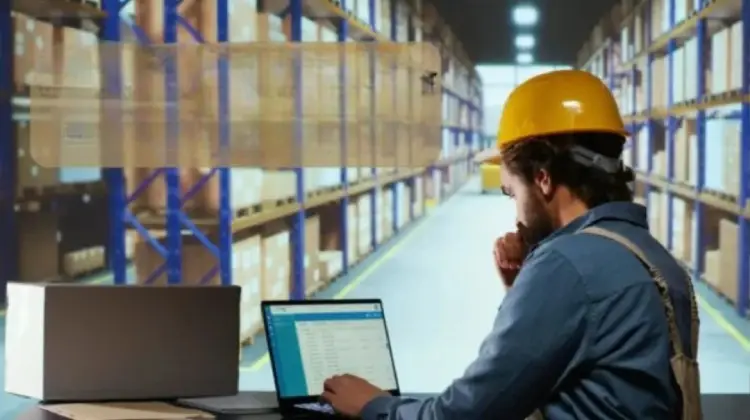Körber’s Comprehensive Cybersecurity Solutions for the Supply Chain
In a rapidly digitalizing world, cybersecurity threats are omnipresent, with attacks on the supply chain posing significant risks to businesses and their clients. Körber, a leader in delivering crucial production solutions, recognizes the critical need for stringent security measures. Their approach to cybersecurity integrates advanced technologies and best practices to safeguard the supply chain, ensuring operational continuity and data integrity.
By employing comprehensive protective strategies, constant monitoring, and proactive threat management, Körber not only strengthens its own operations but also exemplifies industry-leading standards in cybersecurity.
Standard Risks in Supply Chain Attacks
Malware-Infested Software and Hardware: Cybercriminals could introduce malware into a company’s hardware or corrupt a component of software. Malware spreads throughout various entities in the supply chain once hardware or software is installed.
Security Breach in a Trusted Account: This entails breaking into a known account of other supply chain participants. One instance of this kind of assault is business email compromise. Cybercriminals can leverage social engineering and phishing tactics to leverage a trusted hacked email to compromise further emails or deceive recipients into divulging sensitive information.
Watering Hole Cyber Attacks: Cybercriminals can target websites visited by numerous organizations, distributing malware across multiple endpoints within a supply chain or entire industry.
Security Threats to Data Storage Systems: Organizations using cloud services for data processing and storage may be vulnerable to attackers using cloud jacking to obtain important data and commit extensive theft.
Security Threats to Data Storage Systems:
Human Errors: Accidental errors by employees, suppliers, and other supply chain entities can compromise cybersecurity and the supply chain, potentially leading to data breaches or unintended data transfers.
Inadequate Third-Party Cybersecurity: Vendors and suppliers may overlook cybersecurity measures, leading to system vulnerabilities and potential insider threats. This can result in a cascading effect, eroding supply chain connections.
Employee Lapses: Careless system use can lead to account compromises and exploitation by malicious entities, highlighting the need for proper security measures in any system.
Stay Proactive Against Cyber Threats with These Essential Supply Chain Security Measures
Execute a Comprehensive Supply Chain Risk Analysis: Assess supply chain risks, group vendors based on vulnerability, impact on business, and data access, and consider cybersecurity support, supplier security, and software and hardware product safety.
Establish a Robust Cyber Supply Chain Risk Management (C-SCRM) Protocol: A formal C-SCRM program outlines responsibility for business and cybersecurity aspects in supplier relationships, fostering responsibility and ensuring a comprehensive approach to cybersecurity. It manages risks in a cohesive manner, sorting third parties based on risk severity, and helps avoid untrustworthy suppliers and vendors.
Engage with Suppliers to Boost Security Practices: Regular communication with third parties is crucial for mitigating supply chain vulnerabilities. Organize events and training to improve resilience and security. Spread security standards to suppliers uniformly. Use service-level agreements (SLAs) to define responsibilities, standardize requirements, and hold them accountable for cybersecurity incidents.
Fortify Your Data Management Systems: Supply chain security is crucial for protecting corporate data, involving regular backups, efficient network security, loss prevention tools, encryption, and tokenization technologies, and secure file transfer platforms.
Minimize Suppliers’ Access to Vital Assets: To prevent malicious conduct, restrict vendors’ privileged access to critical data and systems, using least privilege and a zero-trust strategy. Ensure employees have access to essential resources for normal tasks.
Scrutinize Supplier Activity: Continuous activity monitoring for vendors, suppliers, and supply chain entities reduces insider attacks, ensures third parties are accountable, and facilitates efficient incident investigation, a crucial requirement for IT compliance.
Outline a Robust Incident Response Plan: Design defences for supply chain hazards, including third-party involvement, to ensure preparedness. Develop a comprehensive incident response strategy based on cybersecurity risk assessment, including guidelines, responsibilities, and processes.
The Path to the Future
Körber remains vigilant and proactive in a world where cyberattacks are becoming more sophisticated and widespread. Use our best measures for supply chain cybersecurity to fortify your supply chain security and make it less susceptible to feasible attackers.
Please reach out to marketing@tychons.com if you need help with identifying the best Körber’s cybersecurity solutions for your supply chain.


